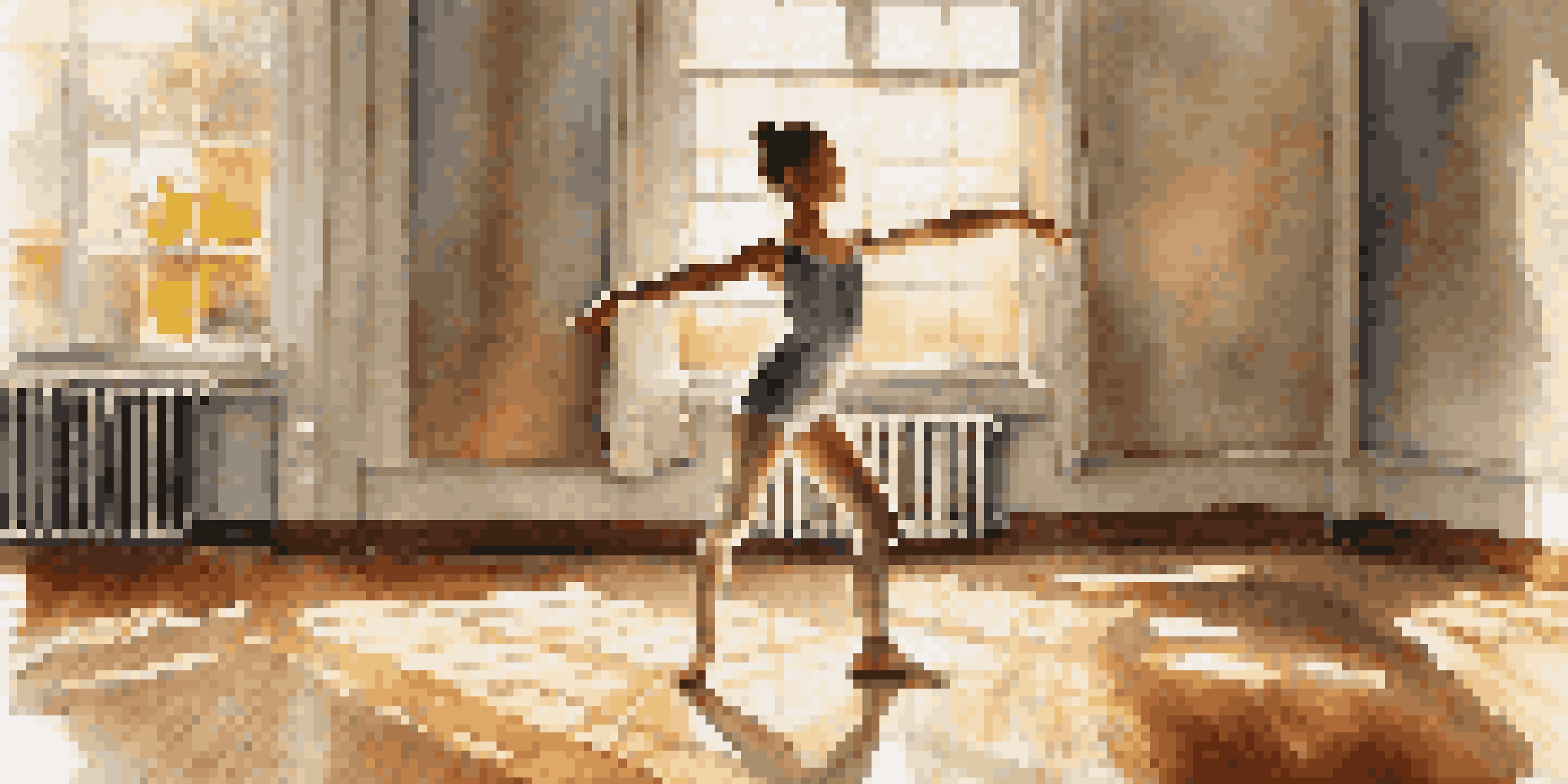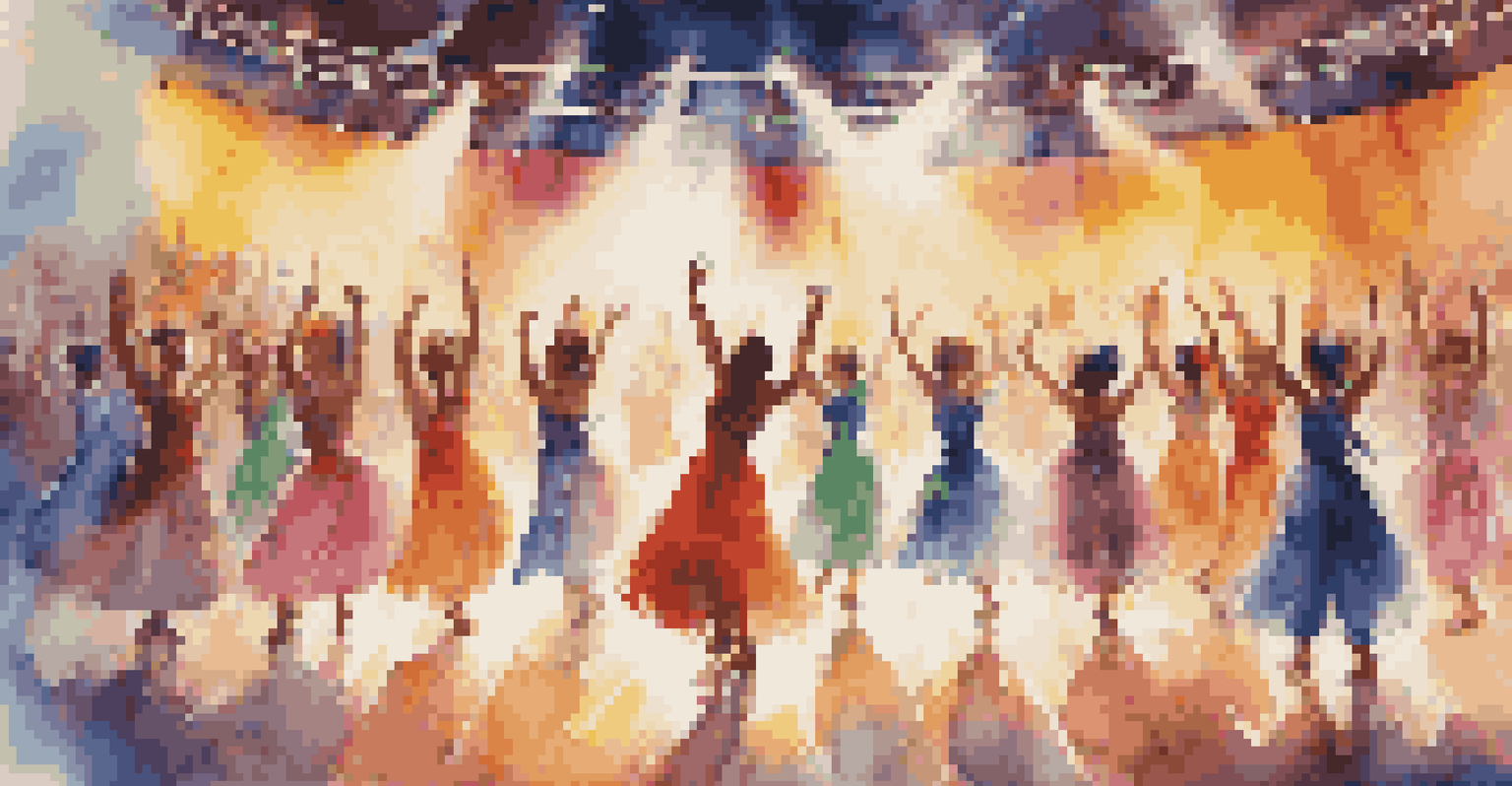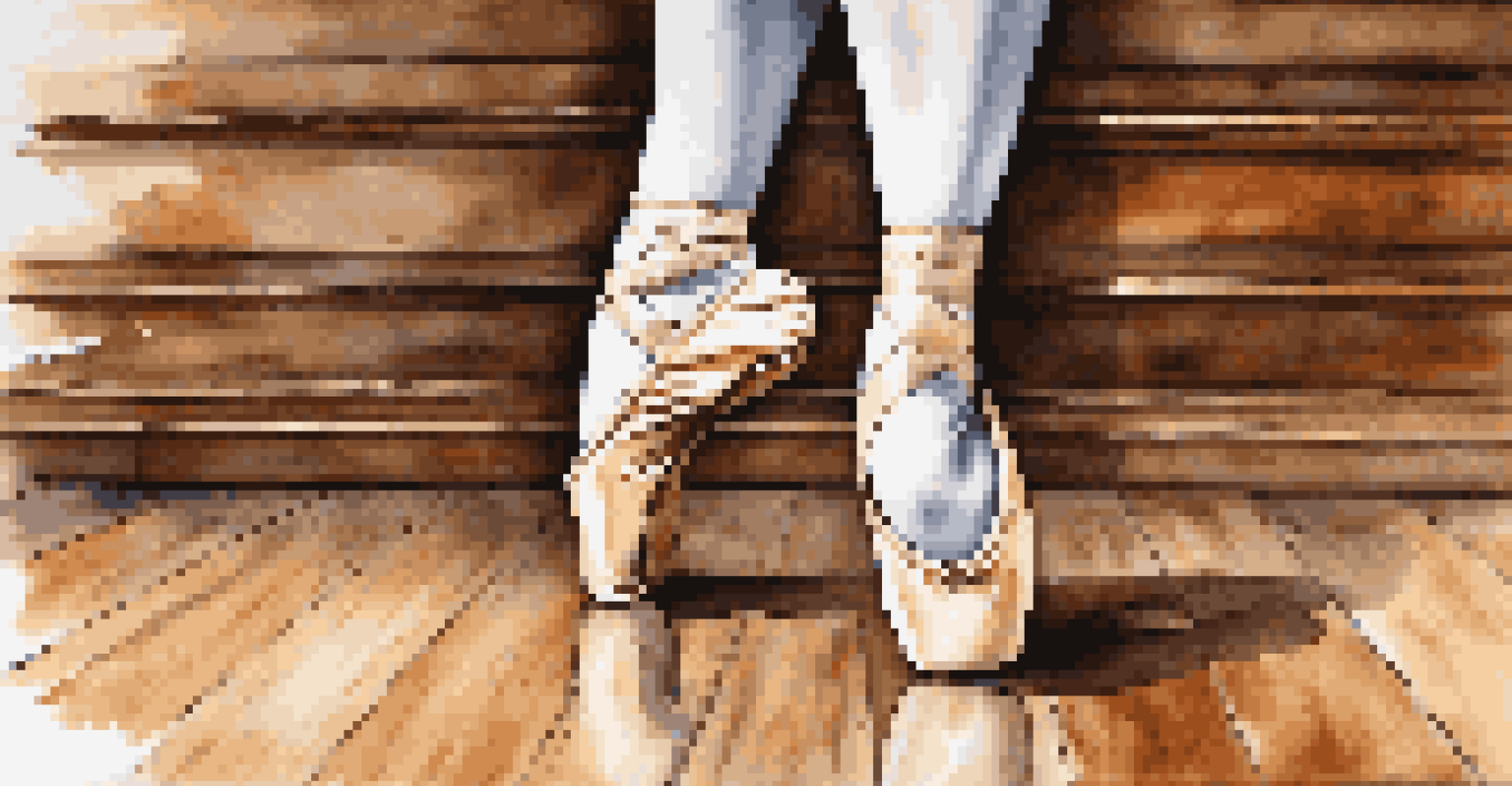Regional Dance Competitions: What to Expect and Prepare

Understanding Regional Dance Competitions: What Are They?
Regional dance competitions are events where dancers showcase their talents in front of judges and audiences. These competitions often feature various dance styles, from ballet to hip-hop, allowing dancers to express their creativity and hard work. Participating in these events can be a thrilling experience, providing both a platform for performance and opportunities for growth.
Dance is the hidden language of the soul.
Typically held at local venues, these competitions attract dancers of all ages and skill levels. As a participant, you’ll not only perform but also receive feedback from experienced judges, which can be invaluable for your development. This constructive criticism helps dancers refine their skills and prepare for future competitions.
Understanding the format of these competitions is essential. Most events will categorize performances by age and dance style, ensuring a fair evaluation process. Whether you're competing solo or as part of a group, knowing what to expect can significantly enhance your experience.
Choosing the Right Dance Piece for Competition
Selecting the right dance piece is crucial for regional competitions. You want to choose a routine that not only showcases your strengths but also aligns with the competition's criteria. Think about how the piece reflects your personality and technical skills, as judges often look for authenticity and passion in performances.

Consider the length and complexity of your routine. Most competitions have time limits, so selecting a piece that fits within these constraints while still allowing you to shine is essential. Additionally, think about how well you can interpret the music and convey emotion through movement, as this can make a significant impact on your score.
Choosing the Right Dance Piece
Selecting a routine that showcases your strengths and aligns with competition criteria is essential for success.
Don’t hesitate to seek feedback from your dance instructor or peers when selecting your piece. They can offer insights into what works best for you and can help you fine-tune your choice. Remember, a well-chosen dance piece sets the stage for a successful performance.
Essential Preparation Steps Before the Competition
Preparation for a regional dance competition involves more than just perfecting your routine. Start by establishing a practice schedule that allows you to rehearse consistently while also incorporating rest days to avoid burnout. Consistency is key, as it helps build confidence and muscle memory ahead of the big day.
Success is not the key to happiness. Happiness is the key to success. If you love what you are doing, you will be successful.
In addition to dancing, consider your mental preparation. Visualization techniques, where you imagine yourself performing successfully, can be incredibly beneficial in building confidence. This mental rehearsal can help you feel more at ease when it’s time to step on stage.
Finally, don’t forget about the logistical aspects of preparation. Ensure your costume is ready, your music is properly edited, and you have all necessary materials packed the night before. Being organized can greatly reduce pre-competition stress and help you focus on delivering your best performance.
What to Expect on Competition Day
Competition day is both exciting and nerve-wracking. As you arrive at the venue, you’ll notice a buzz of energy filled with dancers, parents, and supporters. Embrace this atmosphere—it’s a celebration of talent and passion, and you’re a part of it!
Expect to check in upon arrival, where you’ll receive your performance number and possibly a schedule of events. This is also a good time to familiarize yourself with the venue and warm up in designated areas. Warm-ups are crucial for both physical readiness and calming pre-performance jitters.
Preparation is Key to Performance
Establishing a consistent practice schedule and organizing logistics can significantly reduce pre-competition stress.
As you prepare to perform, remember to stay focused and positive. You might experience nerves, which is entirely normal. Take a few deep breaths and remind yourself why you love dance—let that passion shine through as you take the stage!
Navigating the Competition Format and Scoring
Understanding the competition format and scoring system can demystify the process and help you compete more effectively. Usually, competitions consist of several rounds, including solos, duets, and group performances, with each having specific criteria for judging. Familiarizing yourself with these formats can help you tailor your performance accordingly.
Judges typically score performances based on technical skill, artistry, and overall performance quality. Each category can have different weightings, so knowing what the judges prioritize can give you an edge. For example, if the competition emphasizes creativity, consider how you can infuse originality into your routine.
After your performance, you’ll receive scores and, often, written feedback. Take this feedback constructively—it's an opportunity for growth. Reflect on both the positive points and areas for improvement as you continue your dance journey.
The Importance of Sportsmanship in Competitions
Sportsmanship is a vital aspect of regional dance competitions. While it’s natural to want to win, it’s essential to respect your fellow competitors and celebrate their achievements. A positive attitude can foster a supportive community, making the experience enjoyable for everyone involved.
Congratulating fellow dancers, regardless of the outcome, shows maturity and respect. Remember, every competitor has worked hard to get there, and acknowledging their effort can uplift the entire atmosphere. Building relationships with other dancers can also lead to valuable connections in the dance community.
Embrace Sportsmanship at Competitions
Fostering a positive attitude and respecting fellow competitors enhances the overall experience for everyone involved.
Ultimately, competitions are about personal growth and learning. Embracing a mindset of camaraderie rather than competition can enhance your experience and help you focus on your artistic journey rather than just the end result.
Post-Competition: Reflecting and Learning from the Experience
After the competition, take some time to reflect on your performance and the overall experience. What went well? What could you improve? This self-assessment can help you set goals for future competitions and guide your training moving forward. Embrace both successes and challenges as opportunities for growth.
Don’t forget to review the judges' feedback. Use this valuable insight to refine your technique and artistry. Understanding what the judges appreciated and areas where you can improve will help you evolve as a dancer, ensuring that you’re always striving for excellence.

Lastly, celebrate your hard work regardless of the outcome. Competing is an achievement in itself, and taking pride in your effort is essential. Whether you take home a trophy or not, remember that every experience contributes to your growth as a dancer.